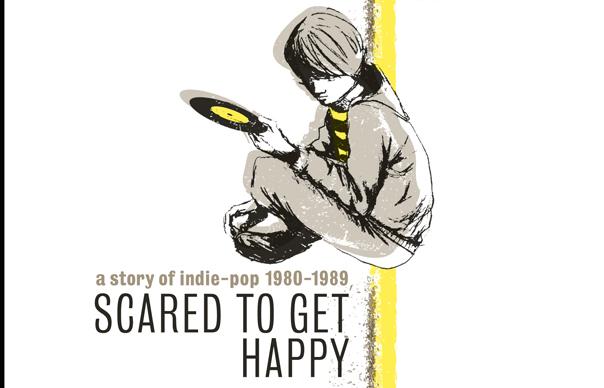Now That's What I Call Indie... A five-disc, 130+ track survey of British indie through the 80s that manages to be paradoxically both more and less than meets the eye. With its title – a mangling of the line from Hurrah!’s “Hip Hip” (not included here), which inspired the fanzine, that birthed the Sarah Records label – and sketchy bowlie boy cover star, STGH is selling itself as the definitive, Nuggets-y story of the rise of indie-pop. But the vagaries of compiling such a boxset hamper this aim. The reluctance of key players like The Pastels or The Vaselines to be involved means that, as a reliable historical account, STGH leaves something to be desired. The aegis of Cherry Red also means that certain labels – Mike Alway’s elegantly eccentric él, for example – are more heavily represented than you might expect. The sheer capacious sprawl of the collection means that the genre is stretched to bursting point, with everyone from The Hangman’s Beautiful Daughters to the TV Personalities. Squint and you can just about see Lloyd Cole as indie-pop, for example (especially in the light of Camera Obscura’s homage), but Prefab Sprout? The Milltown Brothers? Big Flame? Still, these contingencies frequently work in the collection’s favour. Post-C86, the reification and overdefinition of “indie-pop” (a well-trodden path leading from Buzzcocks and Orange Juice to Belle and Sebastian, via Pastels, Creation and Sarah) has resulted in a rarefied international scene where new groups base careers on re-creating the ambience of a solitary flexi disc by The Wake or a Shop Assistants B-side. STGH is engaging for its haphazard trip through the back roads of ’80s guitar groups. Like a tape of some random mid-’80s Peel Show or flicking through an old NME, it restores the vivid mess of history, before it was tidied into canons and genres. The chronological sequencing on the first disc canters from Dolly Mixture’s “Everything And More” to Prefab Sprout’s “Lions In My Own Garden (Exit Someone)” via the The Nightingales, Scars, Jane, Farmer’s Boys, The Room and Weekend. The variety diminishes as the set progresses, (disc three, particularly, is a canonical reunion of the usual C86 suspects). Still, the fact the compilers find space for outliers like Jamie Wednesday and The Shamen encourages the idea of indie as an endearingly varied place. STEPHEN TROUSSÉ
Now That’s What I Call Indie…
A five-disc, 130+ track survey of British indie through the 80s that manages to be paradoxically both more and less than meets the eye. With its title – a mangling of the line from Hurrah!’s “Hip Hip” (not included here), which inspired the fanzine, that birthed the Sarah Records label – and sketchy bowlie boy cover star, STGH is selling itself as the definitive, Nuggets-y story of the rise of indie-pop.
But the vagaries of compiling such a boxset hamper this aim. The reluctance of key players like The Pastels or The Vaselines to be involved means that, as a reliable historical account, STGH leaves something to be desired. The aegis of Cherry Red also means that certain labels – Mike Alway’s elegantly eccentric él, for example – are more heavily represented than you might expect. The sheer capacious sprawl of the collection means that the genre is stretched to bursting point, with everyone from The Hangman’s Beautiful Daughters to the TV Personalities. Squint and you can just about see Lloyd Cole as indie-pop, for example (especially in the light of Camera Obscura’s homage), but Prefab Sprout? The Milltown Brothers? Big Flame?
Still, these contingencies frequently work in the collection’s favour. Post-C86, the reification and overdefinition of “indie-pop” (a well-trodden path leading from Buzzcocks and Orange Juice to Belle and Sebastian, via Pastels, Creation and Sarah) has resulted in a rarefied international scene where new groups base careers on re-creating the ambience of a solitary flexi disc by The Wake or a Shop Assistants B-side.
STGH is engaging for its haphazard trip through the back roads of ’80s guitar groups. Like a tape of some random mid-’80s Peel Show or flicking through an old NME, it restores the vivid mess of history, before it was tidied into canons and genres. The chronological sequencing on the first disc canters from Dolly Mixture’s “Everything And More” to Prefab Sprout’s “Lions In My Own Garden (Exit Someone)” via the The Nightingales, Scars, Jane, Farmer’s Boys, The Room and Weekend. The variety diminishes as the set progresses, (disc three, particularly, is a canonical reunion of the usual C86 suspects). Still, the fact the compilers find space for outliers like Jamie Wednesday and The Shamen encourages the idea of indie as an endearingly varied place.
STEPHEN TROUSSÉ



